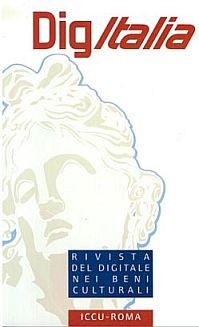Cataloging Cultural Objects and CDWA Lite: New Data Content and Data Format Standards for Art and Material Culture Information
Abstract
Great strides were made during the 1980s and 1990s in the development of standards for art and cultural heritage information in the anglophone world. But what was still lacking in the first years of the twenty-first century was a data content (i.e., cataloging) standard for cultural heritage information, and a technical format specifically designed for the communication and exchange of cultural heritage data in machine-readable form. This paper will provide a brief overview of cultural heritage data standards tools in the anglophone world, culminating in the development of CCO (Cataloging Cultural Objects), a set of guidelines for describing cultural objects and their visual surrogates. It will also introduce CDWA (Categories for the Description of Works of Art) Lite, a data format/technical interchange standard for expressing and sharing CCO-compatible metadata records.Downloads
I dati di download non sono ancora disponibili.
Downloads
Pubblicato
11-04-2006
Come citare
Baca, M. (2006). Cataloging Cultural Objects and CDWA Lite: New Data Content and Data Format Standards for Art and Material Culture Information. DigItalia, 1(1), 45–55. Recuperato da https://digitalia.cultura.gov.it/article/view/313
Fascicolo
Sezione
Saggi
Licenza
Gli Autori che pubblicano su questa rivista accettano le seguenti condizioni:
- Gli Autori mantengono i diritti di proprietà intellettuale sulla loro opera e cedono alla rivista il diritto di prima pubblicazione dell'opera, sotto la seguente licenza: Attribuzione - Condividi allo stesso modo 3.0 Italia (CC BY-SA 3.0 IT). Tale Licenza permette ad altri di condividere l'opera indicando la paternità intellettuale e la prima pubblicazione su questa rivista.
- Gli Autori possono aderire ad altri accordi di licenza non esclusiva per la distribuzione della versione dell'opera pubblicata (es. depositarla in un archivio istituzionale o pubblicarla in una monografia), a patto di indicare che la prima pubblicazione è avvenuta su questa rivista.
- Gli Autori possono diffondere la loro opera online (es. in repository istituzionali o nel loro sito web) dopo la pubbicazione, poiché può portare a scambi produttivi e aumentare le citazioni dell'opera pubblicata (Vedi The Effect of Open Access).






